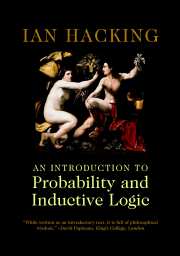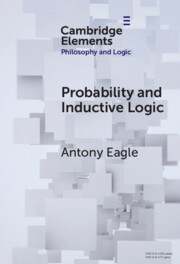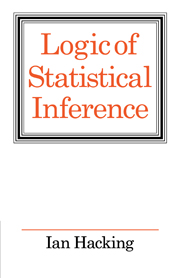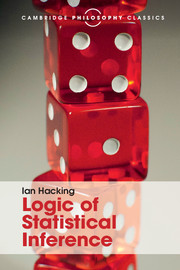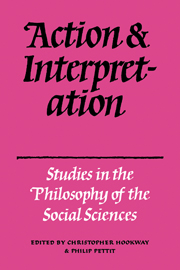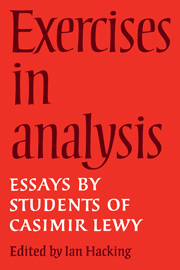An Introduction to Probability and Inductive Logic
This is an introductory 2001 textbook on probability and induction written by one of the world's foremost philosophers of science. The book has been designed to offer maximal accessibility to the widest range of students (not only those majoring in philosophy) and assumes no formal training in elementary symbolic logic. It offers a comprehensive course covering all basic definitions of induction and probability, and considers such topics as decision theory, Bayesianism, frequency ideas, and the philosophical problem of induction. The key features of this book are a lively and vigorous prose style; lucid and systematic organization and presentation of ideas; many practical applications; a rich supply of exercises drawing on examples from such fields as psychology, ecology, economics, bioethics, engineering, and political science; numerous brief historical accounts of how fundamental ideas of probability and induction developed; and a full bibliography of further reading.
- Lively and rigorous style; clear and systematic presentation; assumes no prior knowledge of symbolic logic
- Contains lots of exercises with examples from psychology, bioethics, ecology, economics and political science; shows practical applications
- Hacking internationally known; 5 previous CUP books; Modern Library selected Taming of Chance as one of 100 best books of the twentieth century
Reviews & endorsements
'Hacking's book excels … especially in the practical, concrete examples. It uses minimal mathematics and presumes no acquaintance with symbolic logic. It is well suited for graduate or advanced undergraduate courses in inductive logic or related areas (such as philosophy of science or methodology courses in particular empirical sciences). The book gives a nice introduction to inductive logic.' Harry Gensler, The Times Higher Education Supplement
'This is, as intended, a very introductory text in probability and inductive logic.' Zentralblatt für Mathematik
Product details
July 2001Paperback
9780521775014
322 pages
251 × 175 × 20 mm
0.57kg
Available
Table of Contents
- Part I. Logic:
- 1. Logic
- 2. What is inductive logic?
- Part II. How to Calculate Probabilities:
- 3. The gambler's fallacy
- 4. Elementary probability
- 5. Conditional probability
- 6. Basic laws of probability
- 7. Bayes' rule
- Part III. How to Combine Probabilities and Utilities:
- 8. Expected value
- 9. Maximizing expected value
- 10. Decision under uncertainty
- Part IV. Kinds of Probability:
- 11. What do you mean?
- 12. Theories about probability
- Part V. Probability as a Measure of Belief:
- 13. Personal probabilities
- 14. Coherence
- 15. Learning from experience
- Part VI. Probability as Frequency:
- 16. Stability
- 17. Normal approximations
- 18. Significance
- 19. Confidence and inductive behaviour
- Part VII. Probability Applied to Philosophy:
- 20. The philosophical problem of induction
- 21. Learning from experience as an evasion of the problem
- 22. Inductive behaviour as an evasion of the problem.

